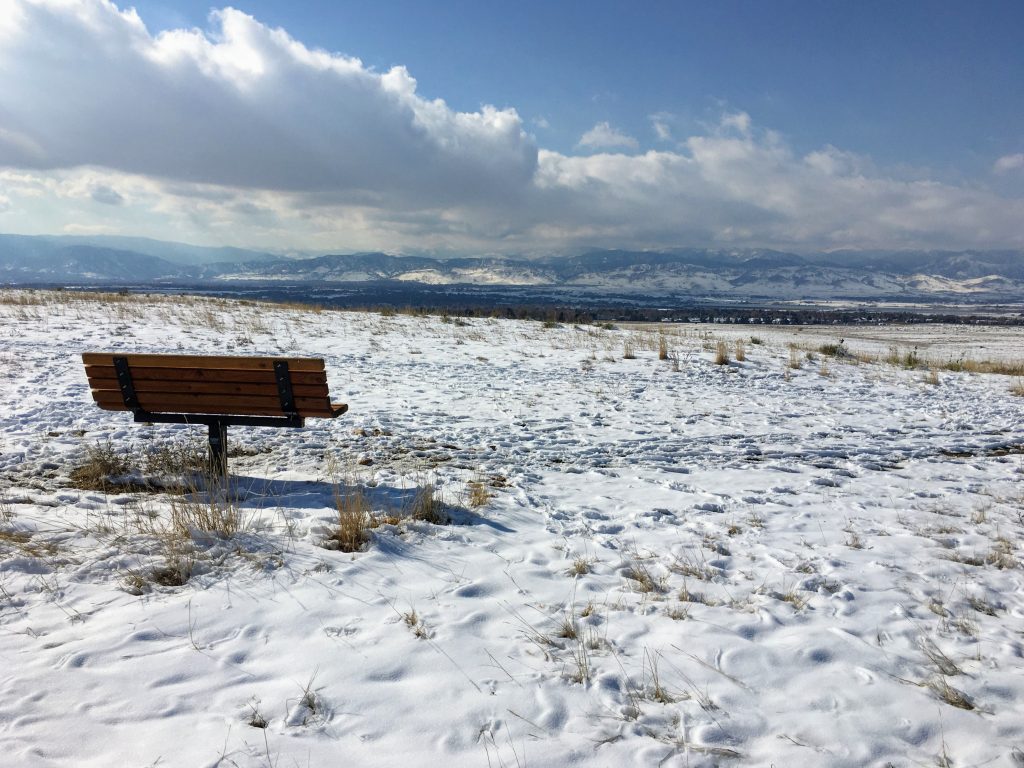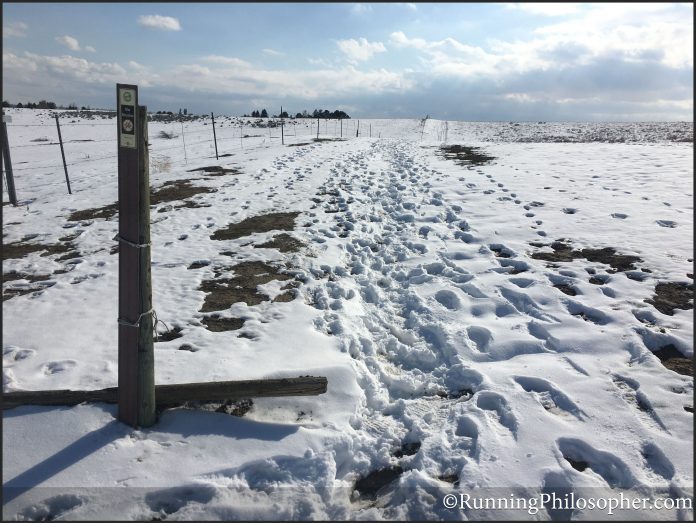Just before Halloween last year, I found myself stuffing in my last training miles of the season, preparing for my final race of the year, the Dead Horse 50k near Moab, Utah. It had been a long season, and I was ready to cap it off with a final, strong long run with some significant hills. I had in mind a 3 ½ to 4-hour loop up Green Mountain in Boulder, which would give me a solid 15 miles and 3,000 feet of climbing – plenty to put an exclamation point on a great training season.
As the gods of climate would have it, we got a thick, wet dumping of snow the night before my planned mountain adventure. From the back deck of my Longmont house, twelve miles away, I could see the north side of Green was covered with drifts – the very slopes I’d be scrambling up and charging down. I knew that trying to scramble up Green Mountain after a snowstorm would entail more slipping, sliding and, postholing than actual running, and today I needed to get in some solid miles.
I realized, after a bit of moping, that I could still do a road run from my house and get most of the training effect I’d wanted, even if I didn’t get the exhilaration of bombing down a mountain trail. So I outlined a 20-mile out-and-back on my slushy neighborhood bike trail. To get some climbing and off-road terrain in I managed to fit in some city trails that cross over farms. Covered with squishy snow, they served as a decent stand-in for the soft, uneven terrain of trails.
The weather was blustery and the skies cloudy as I headed out. Instead of a crisp blue-sky vista of the Indian Peaks under a sunny sky, my view was of defoliated winter trees and the backyards of suburban tract houses. This was not the dream run I’d planned to wrap up the training season.
As I started along, I realized I could turn the very imperfection of the run to my advantage. Developing fortitude and toughness comes not only in overcoming physical obstacles, like tough mountain climbs and sore muscles, but also in developing mental toughness. We run through rain when we’d rather run in the sun; we are cold and muddy when we’d rather be warm and dry. We run under dreary skies in the suburbs, but we push on anyway, logging our three hours, teaching our brains and our bodies that we can observe the imperfection, but don’t need to identify ourselves with it.

Mentally difficult runs force us to distinguish our inner runner – the pure, ceaseless light of our essential selves – from the conditions that surround us, be they emotional, physical, or climatological. This is what Buddhists call non-attachment. We cannot control the outside world, but we can learn to persevere in spite of it.
It’s hard enough to do this when we’ve been expecting a difficult run – before a race or a planned tough workout, for example. It’s even harder when the adversity is unrequested and unexpected. But navigating this type of adversity builds flexibility and mental strength, and allows us to successfully navigate a greater range of emotions when things get tough.
Just as physically hard runs tune up various parts of our running form, mentally hard runs tune up our mental resources. They build our confidence, and reduce our fear in facing seemingly difficult situations. And the more we court them, the less scary these challenging runs become, until, sometimes, they become almost … fun.
Last October, I started my run kicking and screaming, but eventually found my groove and returned home three hours later physically and mentally refreshed, and ready to look ahead to the next challenge.












